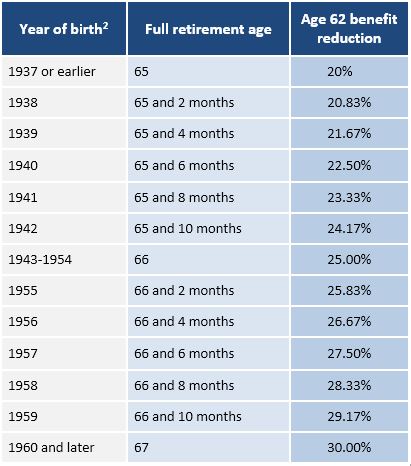Social Security benefits – the foundation of retirement
Not Affiliated with the U.S. government or any governmental agency.
- If you collect Social Security before reaching full retirement age (FRA), your Social Security benefits will be reduced if you earn over $15,480 in 2014. If you reach FRA in 2014, Social Security benefits will be reduced if your earnings are greater than $41,400.)1 When you reach your full retirement age, any month in which benefits were reduced will be removed from the early retirement deduction calculation, which may raise the benefit paid.
- If you reach full retirement age in 2014, delaying benefits beyond full retirement age will result in an 8% per year benefit increase. This increase will reach its maximum value when you reach age 70.
- As much as 85% of your Social Security benefits may be subject to the federal income tax.
- Since a spouse’s survivor’s benefit is based on the deceased spouse’s income amount, you should consider the financial impact the reduced benefit may have on the surviving spouse if Social Security is taken before reaching full retirement age.
- You may want to adjust the age you take retirement income in order to gain the maximum projected total benefit over your lifetime. Since there are many variables to consider (income tax, life expectancy, survivor’s benefit, etc.) you should be careful when considering any break-even analysis.
Many people take a reduced Social Security benefit by drawing income before they reach their full retirement age. While each situation is different, and drawing early might be appropriate, there are a few issues to keep in mind:
- If you expect to live longer than average, keep in mind that the reduced benefit stays with you for the rest of your life. Consider the amount you may be giving up over your lifetime.
- If you plan on working while drawing Social Security before reaching full retirement age, consider the impact of reduced Social Security benefits during that same period. Does your income offset your lost social security dollars?
- Drawing a reduced retirement income benefit may also reduce the income benefit your spouse receives if you die before your spouse.
- If there is a significant difference between your age and that of your spouse, Social Security benefits are likely to be paid over a greater time period than when spouses are close in age. In situations like this it is even more important to understand how different assumptions might impact the possible results. Variables such as the age benefits start, longevity, and survivor’s benefits can combine to produce substantial differences in total benefits received.
Not Affiliated with the U.S. government or any governmental agency.
All information provided can be confirmed via the Social Security Administration. You are encouraged to seek the advice of a Social Security representative
1Social Security Administration, Exempt Amounts under the Earnings Test, 2014.
This document is for educational use only.
This document is designed to provide general information on the subjects covered. Pursuant to IRS Circular 230, it is not however, intended to provide specific legal or tax advice and cannot be used to avoid tax penalties or to promote, market, or recommend any tax plan.
Please note that we do not provide any legal or tax advice. You are encouraged to consult your tax advisor or attorney.



